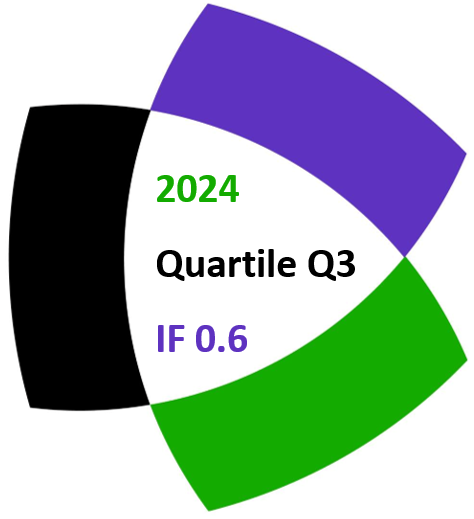Pentti Haukkanen, Jorma K. Merikoski and Timo Tossavainen
Notes on Number Theory and Discrete Mathematics
Print ISSN 1310–5132, Online ISSN 2367–8275
Volume 24, 2018, Number 3, Pages 68–76
DOI: 10.7546/nntdm.2018.24.3.68-76
Full paper (PDF, 162 Kb)
Details
Authors and affiliations
Pentti Haukkanen ![]()
Faculty of Natural Sciences
FI-33014 University of Tampere, Finland
Jorma K. Merikoski ![]()
Faculty of Natural Sciences
FI-33014 University of Tampere, Finland
Timo Tossavainen ![]()
Department of Arts, Communication and Education
Lulea University of Technology, SE-97187 Lulea, Sweden
Abstract
An arithmetic function 𝑓 is Leibniz-additive if there is a completely multiplicative function ℎ𝑓 such that 𝑓(𝑚𝑛) = 𝑓(𝑚)ℎ𝑓(𝑛) + 𝑓(𝑛)ℎ𝑓(𝑚) for all positive integers 𝑚 and 𝑛. A motivation for the present study is the fact that Leibniz-additive functions are generalizations of the arithmetic derivative 𝐷; namely, 𝐷 is Leibniz-additive with ℎ𝐷(𝑛) = 𝑛. We study the basic properties of Leibniz-additive functions and, among other things, show that a Leibniz-additive function 𝑓 is totally determined by the values of 𝑓 and ℎ𝑓 at primes. We also find connections of Leibniz-additive functions to the usual product, composition and Dirichlet convolution of arithmetic functions. The arithmetic partial derivative is also considered.
Keywords
- Arithmetic derivative
- Arithmetic partial derivative
- Arithmetic function
- Completely additive function
- Completely multiplicative function
- Leibniz rule
- Dirichlet convolution
2010 Mathematics Subject Classification
- 11A25
- 11A41
References
- Apostol, T. M. (1976) Introduction to Analytic Number Theory, Springer-Verlag, New York.
- Barbeau, E. J. (1961) Remarks on an arithmetic derivative, Canad. Math. Bull. 4(2), 117–122
- Chawla, L. M. (1973) A note on distributive arithmetical functions, J. Nat. Sci. Math. 13(1), 11–17.
- Haukkanen, P. (1992) A note on generalized multiplicative and generalized additive arithmetic functions, Math. Stud. 61, 113–116.
- Haukkanen, P., Merikoski, J. K. & Tossavainen, T. (2016) On arithmetic partial differential equations, J. Integer Seq. 19, Article 16.8.6.
- Kiuchi, I. & Minamide, M. (2014) On the Dirichlet convolution of completely additive functions. J. Integer Seq. 17, Article 14.8.7.
- Kovic, J. (2012) The arithmetic derivative and antiderivative, J. Integer Seq. 15, Article 12.3.8.
- Laohakosol, V. & Tangsupphathawat, P. (2016) Characterizations of additive functions. Lith. Math. J. 56(4), 518–528.
- McCarthy, P. J. (1986) Introduction to Arithmetical Functions, Springer-Verlag, New York.
- Sándor, J. & Crstici, B. (2004) Handbook of Number Theory II, Kluwer Academic, Dordrecht.
- Schwab, E. D. (1995) Dirichlet product and completely additive arithmetical functions, Nieuw Arch. Wisk. 13(2), 187–193.
- Shapiro, H. N. (1983) Introduction to the Theory of Numbers, Wiley InterScience, New York.
- Ufnarovski, V. & Åhlander, B. (2003) How to differentiate a number, J. Integer Seq. 6, Article 03.3.4.
Related papers
Cite this paper
Haukkanen, P., Merikoski, J. K., & Tossavainen, T. (2018). The arithmetic derivative and Leibniz-additive functions. Notes on Number Theory and Discrete Mathematics, 24(3), 68-76, DOI: 10.7546/nntdm.2018.24.3.68-76.


